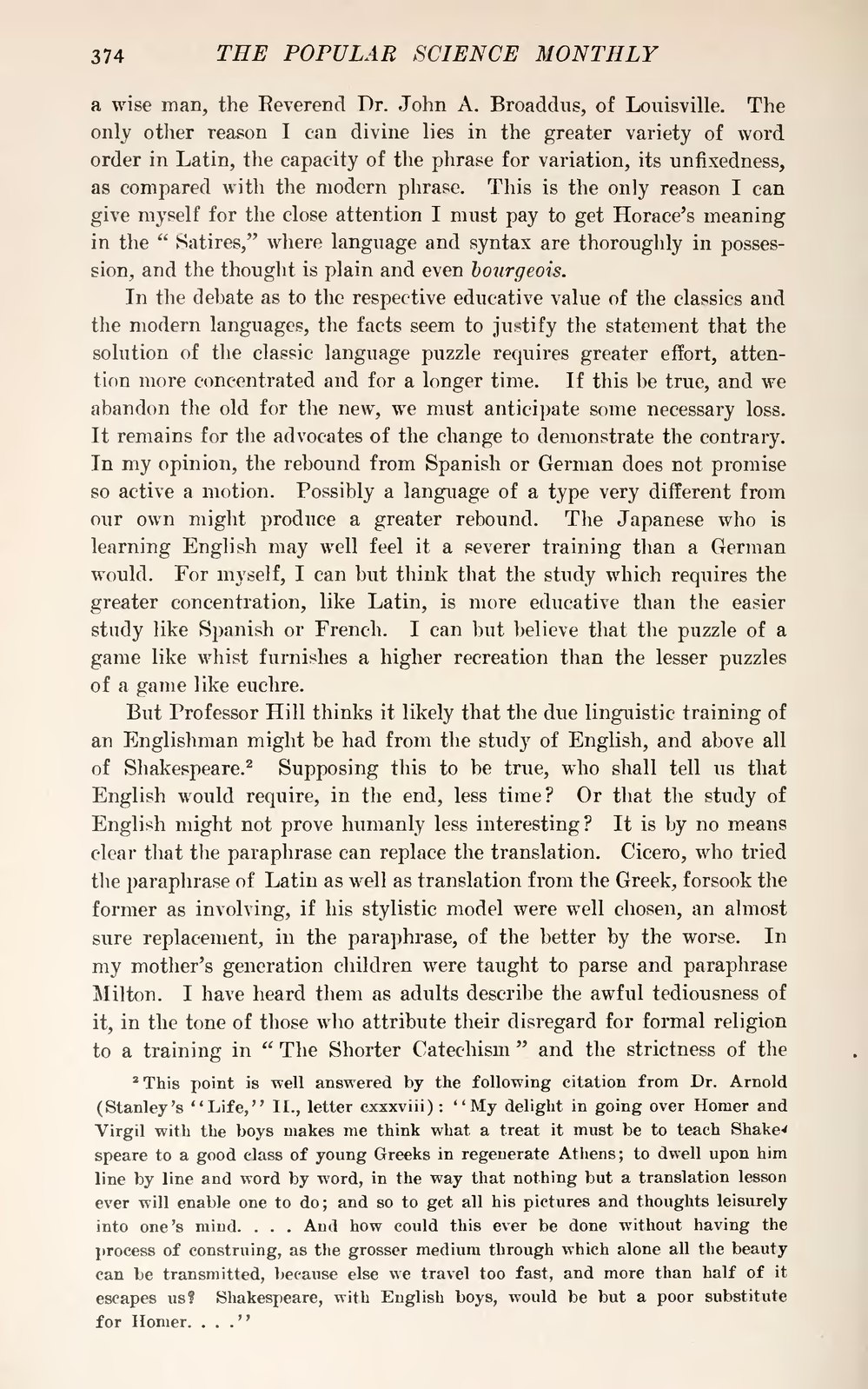a wise man, the Reverend Dr. John A. Broaddus, of Louisville. The only other reason I can divine lies in the greater variety of word order in Latin, the capacity of the phrase for variation, its unfixedness, as compared with the modern phrase. This is the only reason I can give myself for the close attention I must pay to get Horace's meaning in the "Satires," where language and syntax are thoroughly in possession, and the thought is plain and even bourgeois.
In the debate as to the respective educative value of the classics and the modern languages, the facts seem to justify the statement that the solution of the classic language puzzle requires greater effort, attention more concentrated and for a longer time. If this be true, and we abandon the old for the new, we must anticipate some necessary loss. It remains for the advocates of the change to demonstrate the contrary. In my opinion, the rebound from Spanish or German does not promise so active a motion. Possibly a language of a type very different from our own might produce a greater rebound. The Japanese who is learning English may well feel it a severer training than a German would. For myself, I can but think that the study which requires the greater concentration, like Latin, is more educative than the easier study like Spanish or French. I can but believe that the puzzle of a game like whist furnishes a higher recreation than the lesser puzzles of a game like euchre.
But Professor Hill thinks it likely that the due linguistic training of an Englishman might be had from the study of English, and above all of Shakespeare.[1] Supposing this to be true, who shall tell us that English would require, in the end, less time? Or that the study of English might not prove humanly less interesting? It is by no means clear that the paraphrase can replace the translation. Cicero, who tried the paraphrase of Latin as well as translation from the Greek, forsook the former as involving, if his stylistic model were well chosen, an almost sure replacement, in the paraphrase, of the better by the worse. In my mother's generation children were taught to parse and paraphrase Milton. I have heard them as adults describe the awful tediousness of it, in the tone of those who attribute their disregard for formal religion to a training in "The Shorter Catechism" and the strictness of the
- ↑ This point is well answered by the following citation from Dr. Arnold (Stanley's "Life," II., letter cxxxviii): "My delight in going over Homer and Virgil with the boys makes me think what a treat it must be to teach Shakespeare to a good class of young Greeks in regenerate Athens; to dwell upon him line by line and word by word, in the way that nothing but a translation lesson ever will enable one to do; and so to get all his pictures and thoughts leisurely into one's mind. . . . And how could this ever be done without having the process of construing, as the grosser medium through which alone all the beauty can be transmitted, because else we travel too fast, and more than half of it escapes us? Shakespeare, with English boys, would be but a poor substitute for Homer. . . ."
